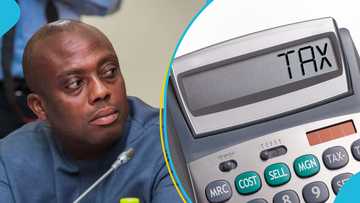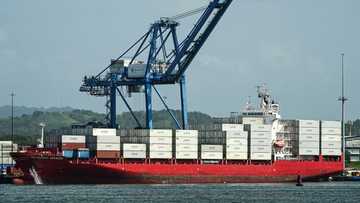Top 10 Takeaways From The Opening Of Ghana's National Economic Dialogue
YEN.com.gh outlines the key takeaways from the start of the two-day National Economic Dialogue at the Accra International Conference Centre which brought together some of Ghana's leading economic minds.
The National Economic Dialogue commenced at the Accra International Conference Centre on March 3, bringing together key economic stakeholders.
At the commencement of the two-day programme, President John Mahama delivered a keynote address outlining his administration’s vision for economic recovery.
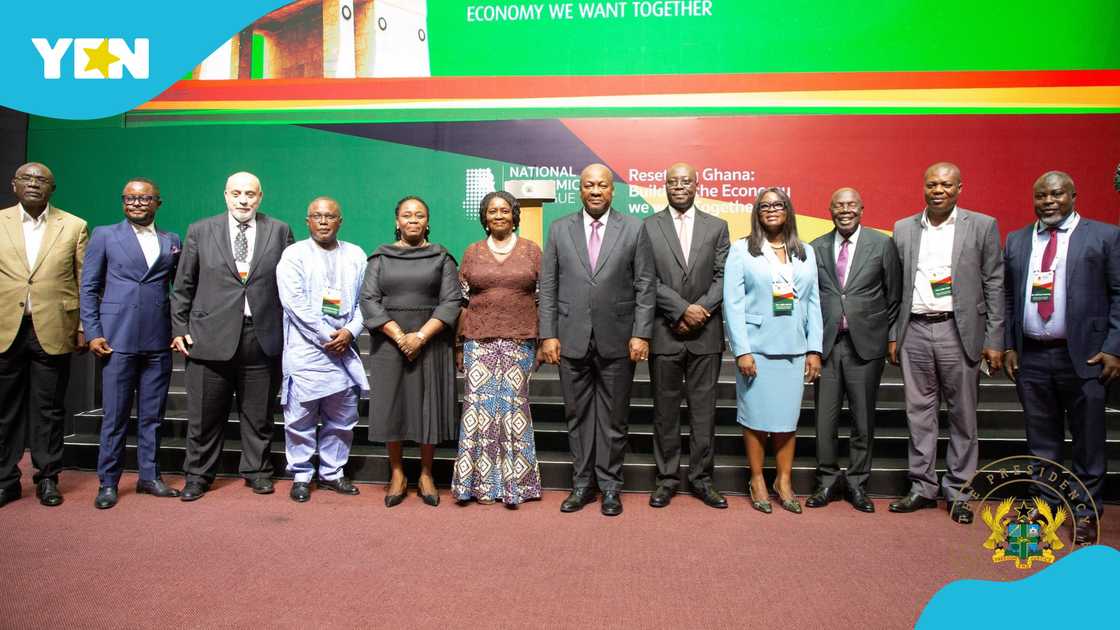
Source: Twitter
The theme of the forum is 'Resetting Ghana: Building the Economy We Want Together'. The forum was a key campaign promise of the president ahead of his election victory.
As the forum progresses, stakeholders will further deliberate on actionable strategies to restore Ghana's economic stability and drive long-term development.
The forum focuses on sustainable macroeconomic stability, promoting economic transformation, implementing structural reforms, advancing infrastructure development, ensuring private sector-led growth and restoring good governance.
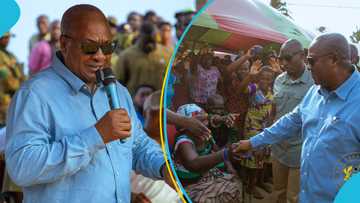
Read also
“I was shocked”: Mahama visits victims from tidal wave flooding in Volta, distributes relief items
Main takeaways from the Ghana's economic forum
Bold reforms needed
Finance Minister Cassiel Ato Forson stressed the need for comprehensive economic reforms to ensure a reset and the long-term goal of making Ghana an upper-middle-income country before the year 2038.
Without ambitious measures, Ghana is unlikely to attain this status until after 2050, the politician stated.
“We have no choice but to introduce measures to reset our economy. If we are to do well and introduce very ambitious reforms, Ghana will indeed become an upper middle-income country before the year 2038."
Focus areas for economic reform
Forson outlined seven key areas of reform to turn the economy around as the Mahama administration embarks on its reset.
These were:
- Enhancing Domestic Revenue Mobilisation
- Pursuing Qualitative Fiscal Consolidation
- Ensuring Compliance with Public Financial Management and Procurement Laws
- Enhancing Efficiency in Public Spending
- Phasing Out Costly and Ineffective Subsidies
- Reforming State-Owned Enterprises
- Strengthening Ghana’s Fiscal Framework.
Savings from new Treasury Bill approach

Read also
Mahama touts cost savings in Akufo-Addo’s face as Ghana holds modest Independence Day celebration
According to Forson, Ghana has saved approximately GH¢1 billion following the reduction in Treasury Bill rates after the central government significantly reduced its demand for the bills.
He explained that the savings generated from the lower rates would be redirected towards critical sectors of the economy to enhance development.
At the start of the year, the 91-day Treasury Bill stood at 28.34% but has now dropped to 20.79%, reflecting a 760-basis-point decline. Similarly, the 182-day bill has fallen from 28.96% to 22.98%, a 600-basis-point drop.
The 364-day bill, which previously yielded 30.17%, has now declined to 22.69%, marking a significant 750-basis-point reduction.
Praise for Mahama at conference
Chairman of the National Economic Dialogue Dr. Ishmael Yamson, who led the planning of the forum, hailed Mahama as the only leader capable of resetting Ghana.
Yamson stressed that there was an urgent need for transformative leadership to address Ghana’s economic challenges. He believes Mahama is well-placed to fill that void.
“Someone must reset Ghana, and it can only be you [John Mahama]. Everywhere in the world that economic transformation has taken place, only one individual has led the charge, and the Lord has blessed you with the wisdom to take on that task."
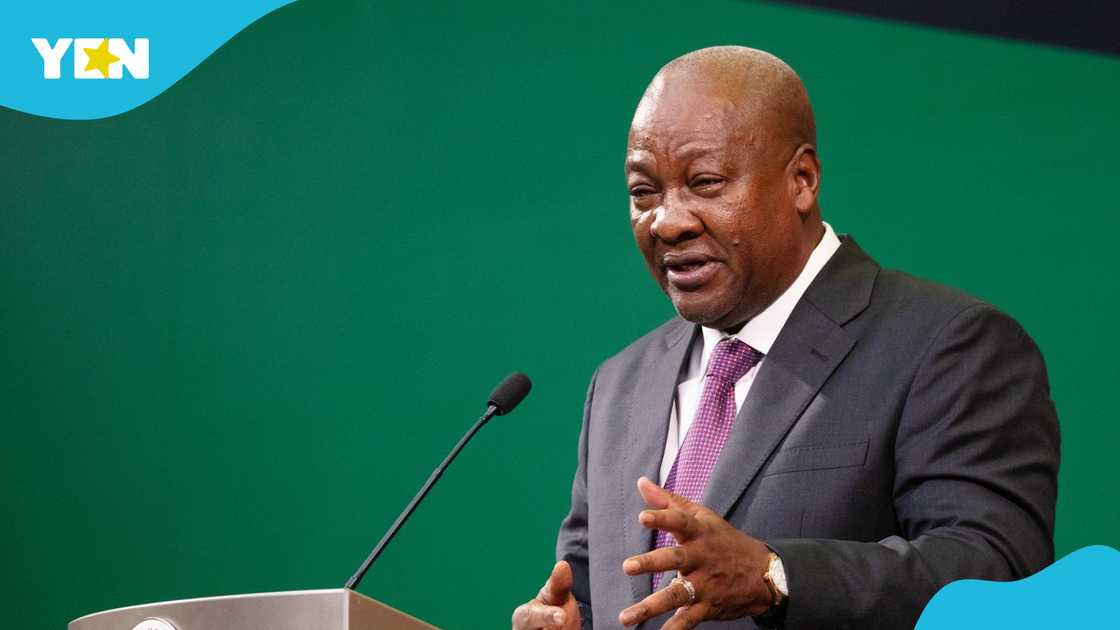
Source: UGC
Call for collective responsibility
During his address, Mahama asserted that the gathering was much more than a symbolic gathering.
“It is a decisive step in our collective responsibility to reset Ghana's economy, restore confidence, and build the prosperous future we all envision.”
Commitment to stability
The president underscored his administration’s priority to restore macroeconomic stability through responsible public financial management and fiscal discipline.
Mahama described this as his priority.
“We must enforce responsible public financial management and ensure fiscal discipline at all levels of government, while working to reduce hardships for our people.”
Role of the private sector
President Mahama reiterated his administration’s commitment to structural reforms that would make the private sector the engine of growth.
“We will examine the structural reforms that are necessary to unleash the private sector's potential and make it truly the engine of growth that drives job creation and innovation.”
Revitalising the banking sector
Mahama said the collapse of some local banks had reduced local participation in the financial sector and led to job losses.
In that context, the President pledged to work towards restoring confidence in Ghana’s banking system.
“The ill-considered collapse of indigenous banks significantly reduced indigenous presence in Ghana’s financial and banking space and led to massive job losses.”
The need for industrialisation
The president stressed the need to move away from raw material exports towards industrialisation.
“It’s time to transition to a value-added, industrialised economy that creates jobs, boosts exports, and reduces our reliance on imports.”
Envisioning a resilient and prosperous Ghana
Mahama called on all stakeholders to work together towards long-term economic transformation.
He has described Ghana as being criminally mismanaged but assured that economic hardship would not be the norm.
He further reaffirmed his commitment to ensuring that Ghana’s economic future is shaped by consensus and collective effort.
“Together, we will build the Ghana we want and a robust economy of our design and creation.”
Source: YEN.com.gh

